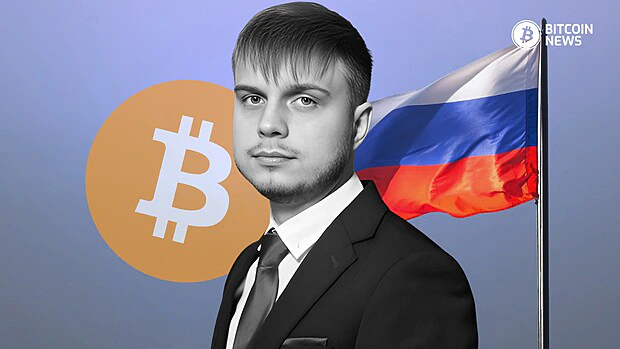A Russian lawmaker is calling for a national bitcoin reserve, saying it would be a strategic asset to protect the country from geopolitical risks and financial volatility.
Anton Tkachev from the “New People” party has officially proposed creating a Strategic Bitcoin Reserve (SBR). The proposal has been sent to Finance Minister Anton Siluanov, as Russia becomes more and more isolated from the global financial system.
Tkachev’s proposal, published by state-run RIA Novosti, says Bitcoin is a hedge against sanctions, a protection against inflation and a profitable investment. He suggests bitcoin could be like traditional currency reserves (USD, EUR, CNY) as an economic stabilizer.
The proposal points out the weaknesses of traditional currency reserves which are subject to sanctions, inflation and geopolitical pressure.
“I ask you, dear Anton Germanovich, to assess the feasibility of creating a strategic reserve of bitcoin in Russia by analogy with state reserves in traditional currencies,” Tkachev wrote. He added:
“With limited access to international payment systems, cryptocurrencies represent one of the few viable options for global trade under current conditions.”
Bitcoin’s decentralization makes it less controllable from outside, a big plus in a world where financial sanctions disrupt trade and economies.
Tkachev also mentioned bitcoin’s investment performance, highlighting it’s recent rise to $100,000. He called a stable store of value and also an asset with big profit potential.
This is in line with Russia’s recent Bitcoin-friendly moves. President Vladimir Putin has publicly said that “nobody can ban Bitcoin” and that it’s an inevitable part of financial evolution.
Earlier this year Russia passed laws allowing bitcoin mining and tax incentives for Bitcoin-related activities. The Central Bank of Russia is also going to test cross-border digital asset payments to reduce dependence on traditional financial systems.
Russia is not alone. El Salvador made headlines in 2021 by adopting bitcoin as legal tender and creating its own bitcoin reserve. The US is also exploring the idea of having a bitcoin reserve, with Senator Cynthia Lummis proposing to buy up to 1 million bitcoin.
Other countries, like Poland and Brazil, are also considering to create bitcoin reserves, saying it would increase economic resilience and independence.
Related: Strategic Bitcoin Reserve Bill Introduced to Brazil’s Chamber of Deputies
While Tkachev’s plan is big, it’s got big barriers. Creating a bitcoin reserve would require changes in the law and cooperation between the Finance Ministry and the Central Bank. And then there’s the logistics of storing and managing such a large amount of digital currency.
But experts say the idea shows how digital assets are becoming part of the global financial landscape. Bitcoin, once considered a toy, is now seen as a tool for stability and leverage.
If implemented, a bitcoin reserve would have numerous benefits for Russia:
- Sanctions Bypass: Using Bitcoin for international trade helps the country bypass traditional payment systems that are often blocked by sanctions.
- Inflation Protection: Unlike traditional currencies, bitcoin has a limited supply, so it’s less prone to inflation.
- Investment Opportunity: Bitcoin’s price has been going up for years, so there’s a chance to make some money.
Tkachev has asked the Finance Ministry to check the idea and present it to the government.
While it’s still in the early stages, it’s already sparked talk about Bitcoin in geopolitics and international trade. Modern times demand new payment systems and alternative reserve assets not tied to any one country.
Whether Russia creates a strategic bitcoin reserve or not, the idea shows how countries are rethinking digital assets. As the economic pressure mounts, Bitcoin is becoming essential in reshaping the global financial system.
In a world where sanctions and economic instability are the new normal, Russia’s consideration of a bitcoin reserve may open the door for others to follow. For now, many are waiting to see what Moscow does next.










